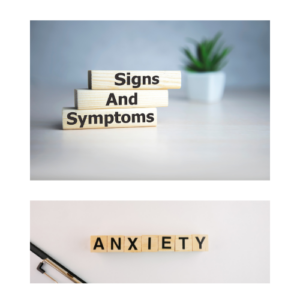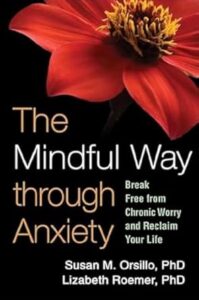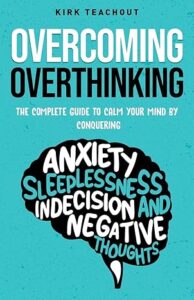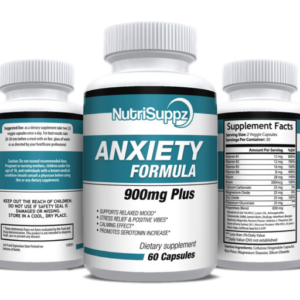29 Aug Understanding Chronic Anxiety: Causes, Symptoms, and Treatment
Understanding Chronic Anxiety: Causes, Symptoms, and Treatment
Chronic anxiety is a persistent form of anxiety that significantly impacts daily life and overall well-being. Unlike occasional stress or anxiety, chronic anxiety persists over a long period and can be debilitating. This blog post explores the nature of chronic anxiety, its causes, symptoms, and effective treatment options.
What is Chronic Anxiety?
Chronic anxiety is characterized by persistent and excessive worry or fear that lasts for months or even years. Unlike situational anxiety, which is temporary and linked to specific events, chronic anxiety is ongoing and can interfere with daily functioning. It often manifests as generalized anxiety disorder (GAD) but can also be present in other anxiety disorders, such as panic disorder or social anxiety disorder.
Causes of Chronic Anxiety
The development of chronic anxiety is influenced by a combination of factors. Genetic predisposition plays a role, as individuals with a family history of anxiety disorders may be more susceptible. Environmental factors, such as exposure to trauma or prolonged stress, can also contribute to the onset of chronic anxiety.
Additionally, imbalances in neurotransmitters, such as serotonin and norepinephrine, can affect mood regulation and increase the likelihood of chronic anxiety. Cognitive patterns, such as a tendency to catastrophize or overestimate danger, can further perpetuate anxiety.
Symptoms of Chronic Anxiety
Chronic anxiety presents with a range of symptoms that can vary in intensity. Common physical symptoms include muscle tension, headaches, fatigue, and gastrointestinal issues. Individuals may also experience persistent feelings of restlessness or being on edge.
Psychologically, chronic anxiety can lead to constant worry, difficulty concentrating, and a sense of impending doom. Emotional symptoms often include irritability and heightened sensitivity to stress. Behavioral symptoms may involve avoidance of anxiety-provoking situations and compulsive behaviors aimed at reducing anxiety.

Impact of Chronic Anxiety on Daily Life
The impact of chronic anxiety can be profound and far-reaching. It often affects personal relationships, work performance, and overall quality of life. Individuals with chronic anxiety may struggle with social interactions, leading to isolation and decreased social support.
Professional and academic performance can be hindered by difficulty concentrating and managing stress. Chronic anxiety can also lead to a reduced ability to enjoy activities that once brought pleasure, contributing to a cycle of stress and dissatisfaction.
Treatment Options for Chronic Anxiety
Effective treatment for chronic anxiety typically involves a combination of therapies. Cognitive-behavioral therapy (CBT) is a widely recognized approach that helps individuals identify and modify negative thought patterns and behaviors associated with anxiety. It focuses on developing coping strategies and problem-solving skills.
Medication may also be prescribed to help manage symptoms. Selective serotonin reuptake inhibitors (SSRIs) and serotonin-norepinephrine reuptake inhibitors (SNRIs) are commonly used to balance neurotransmitter levels and alleviate anxiety symptoms.
In addition to professional treatments, self-care strategies play a crucial role. Regular physical exercise, mindfulness and relaxation techniques, and a healthy lifestyle can help manage anxiety and improve overall well-being. Support from family, friends, and support groups can also provide valuable assistance in coping with chronic anxiety.
When to Seek Professional Help
Seeking professional help is essential when chronic anxiety begins to interfere with daily life and functioning. A mental health professional can conduct a thorough assessment and develop a personalized treatment plan. Early intervention can improve outcomes and help individuals regain control over their lives.
If you experience persistent anxiety symptoms that do not improve with self-care strategies, or if you find it challenging to manage your anxiety on your own, consulting with a healthcare provider is crucial.
Conclusion
Chronic anxiety is a serious condition that can impact various aspects of life. Understanding its causes, symptoms, and effects is the first step toward effective management. By combining professional treatment with self-care strategies, individuals can work towards reducing anxiety and enhancing their overall quality of life.
At NutriSuppz, we are committed to providing information and resources to support mental health. For more insights into managing chronic anxiety and other mental health concerns, explore our website and consult with a healthcare provider.
Understanding Chronic Anxiety: Causes, Symptoms, and Treatment
For further information on anxiety and mental well-being, visit our website.




No Comments